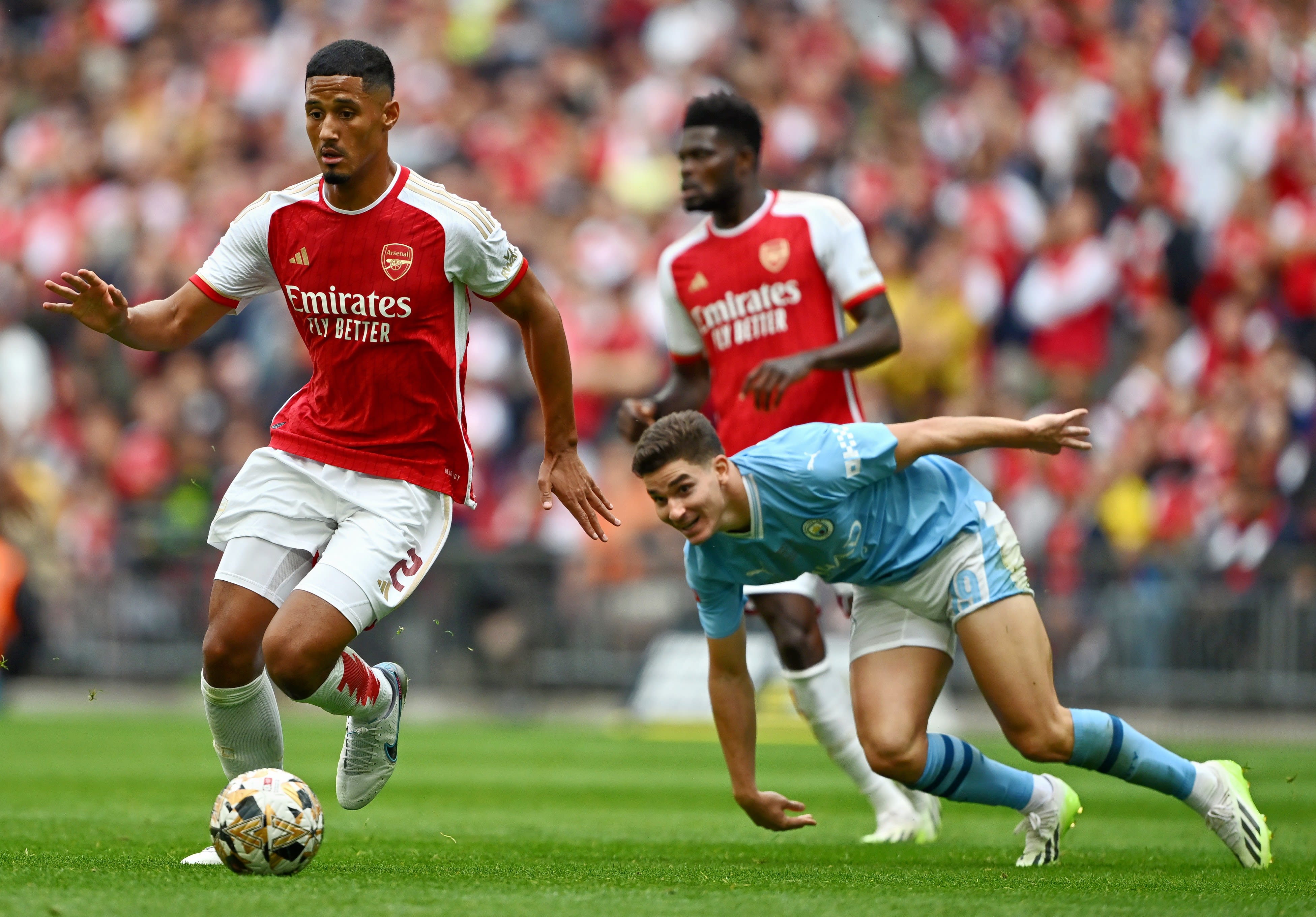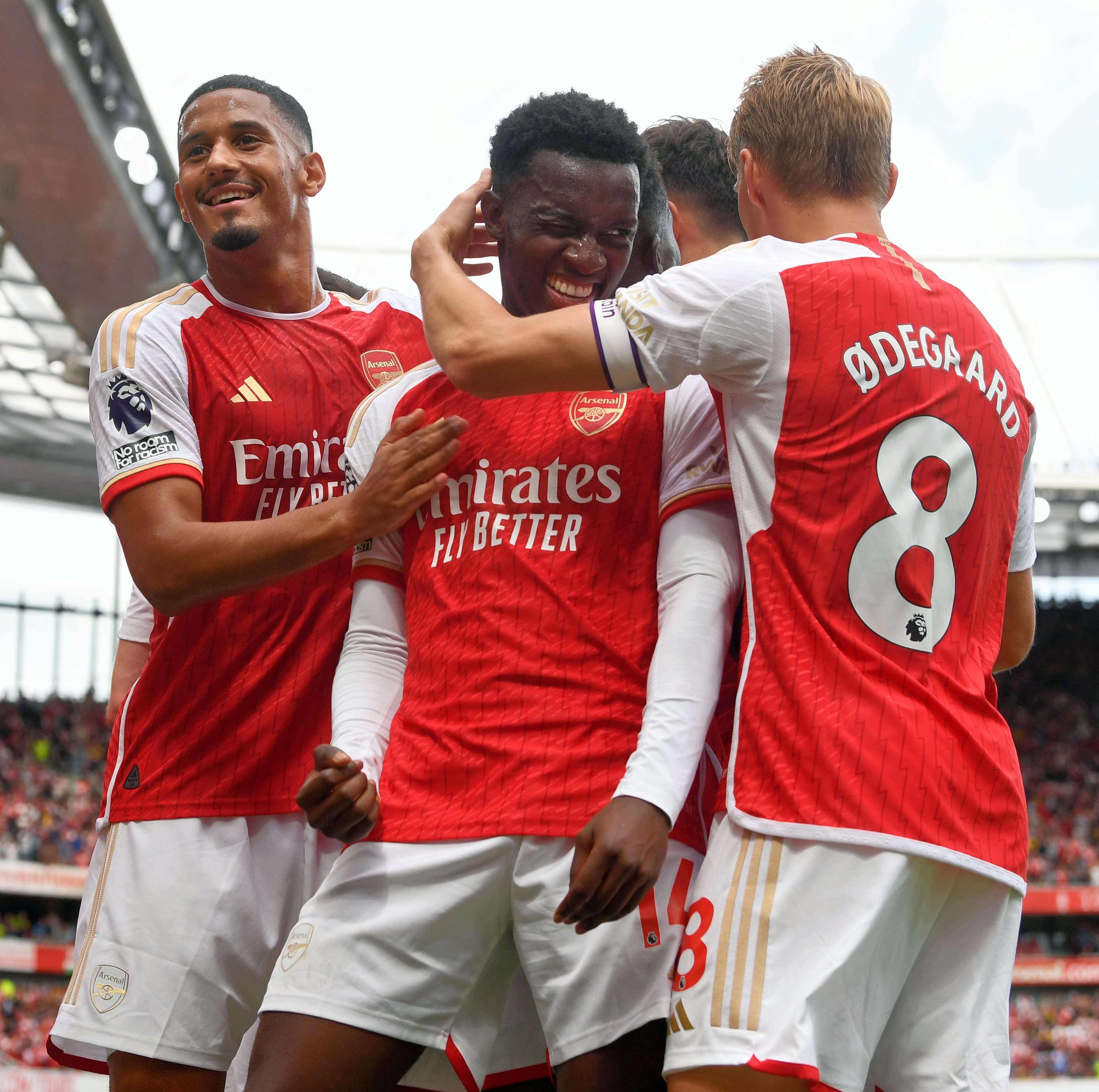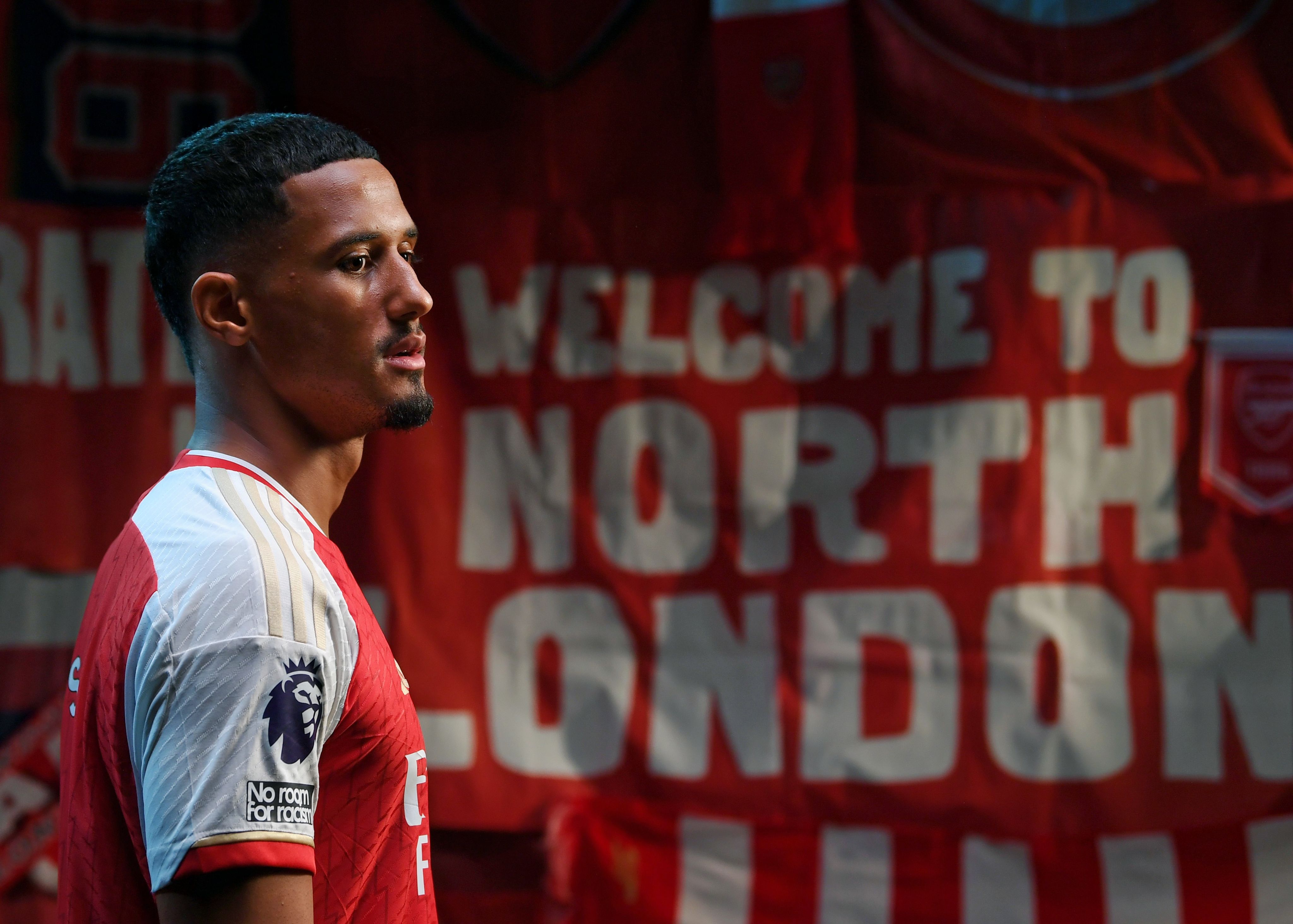Saliba: Sulking striker turned devoted defender
William Saliba’s first full season in the team was a triumph, and he was duly named in the Premier League Team of the Season at the 2022/23 PFA Awards. As the defender tells us, he’s come a long way from the raw talent he displayed as a boy in Bondy, Paris.
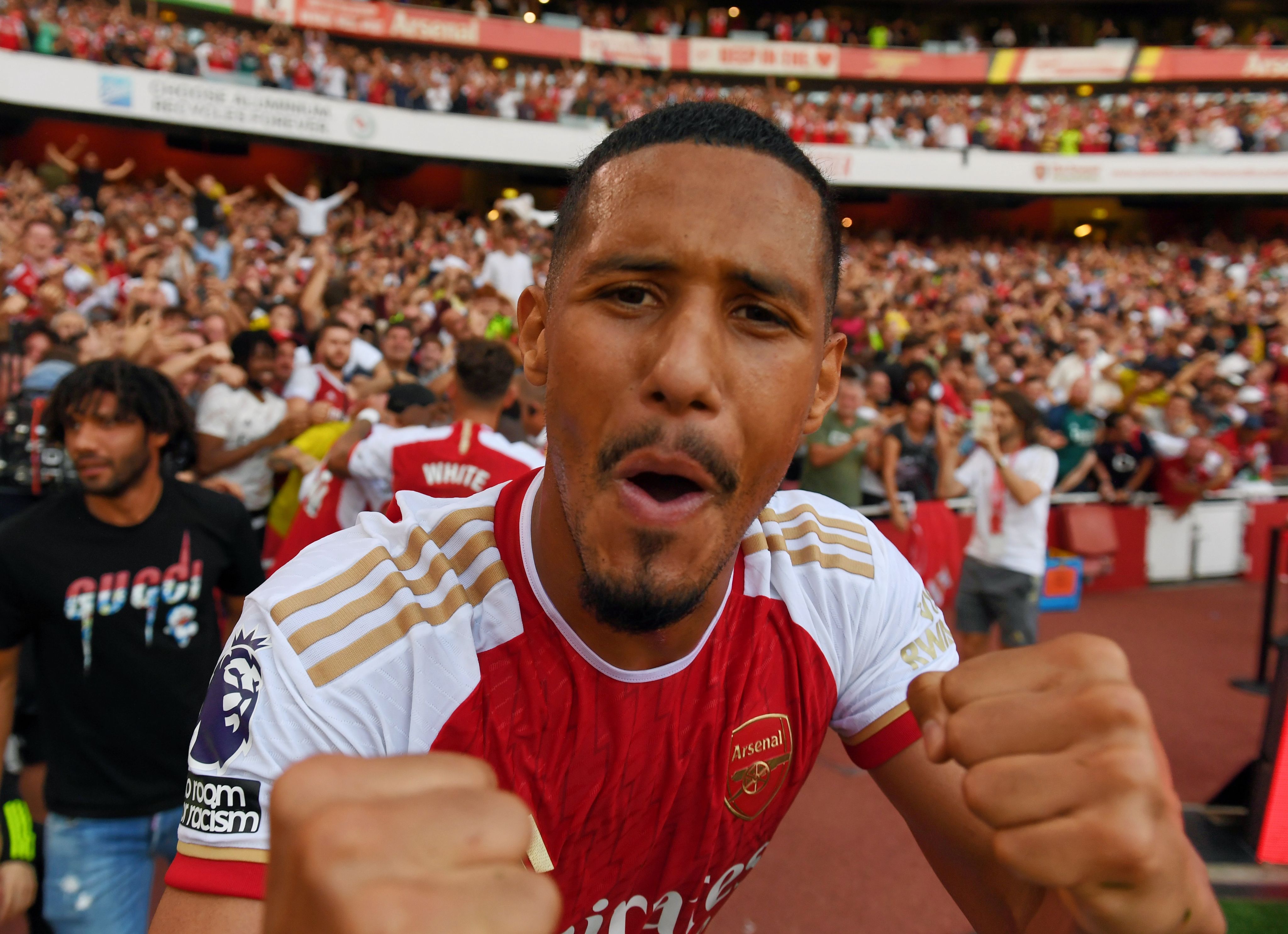
Youth football is a time when many players fall in love with the sport. It’s often the first time they experience being part of a team – often not much more than a group of your closest mates – all pulling for the same objectives, spending time together and getting to play out the games with more of a carefree spirit.
That was the case for William Saliba. From the age of six he was part of his local club, AS Bondy, situated in the northeast suburbs of Paris, where he was born and raised. And he has plenty of fond memories from that time.

It’s the club where Kylian Mbappe also learned his trade before moving on to become a global superstar and World Cup winner at the age of just 19. Mbappe’s father coached at Bondy too, including young Saliba, who was a striker at the time.
Kylian – who went to the same primary school as Wilo - was a couple of age groups ahead of our defender at Bondy, before moving to Monaco, and later Paris Saint-Germain. It proved to be a successful launchpad for Wilo too, and he credits those early days in Paris for a fundamental shift in his attitude, that helped turn him from – in his own words – ‘a lazy sulk’ into the world-class defender we see today.
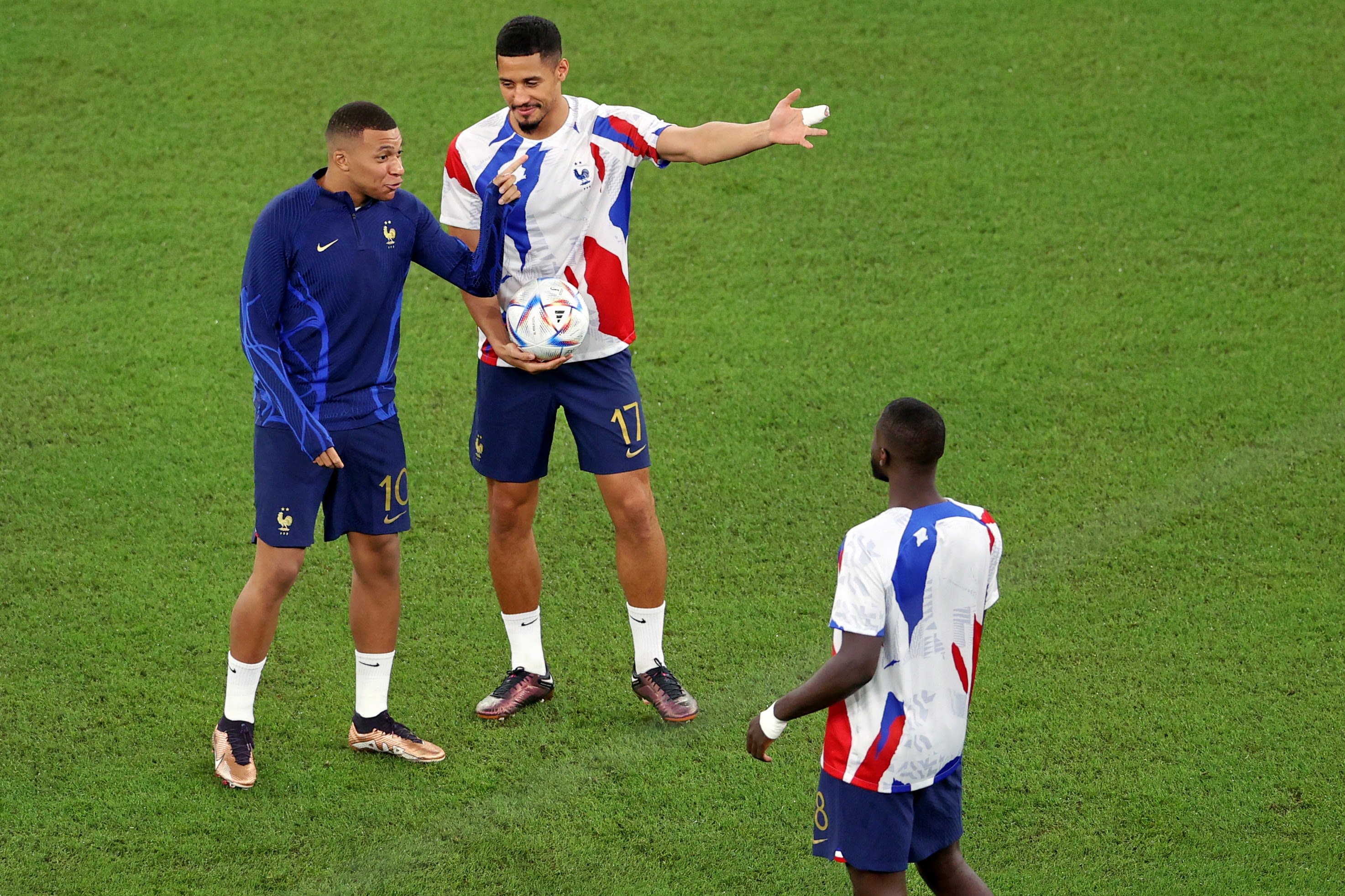
“I was just six when I started out at Bondy, my local club,” he begins. “It was the local club where I grew up, so I knew everyone there. I played as a striker back then when I was young and I loved it. I would say I was one of the best players in the team, maybe the best player, I don’t know. Let’s just say I was in the top two or three!
"There were some very good players in that team too. Some of them have gone on to play professionally, not just in France but everywhere. We had a lot of players come through that club who went on to be professional, not just Mbappe of course, but players in our age group too.
“I’m still friends with some of them today. We all grew up in that city, so when we can have some days off, we go back there and it’s a good chance to meet up with people again.”
"My manager would always tell me off for sulking, or for being lazy in training. This is maybe why I wasn’t captain!"
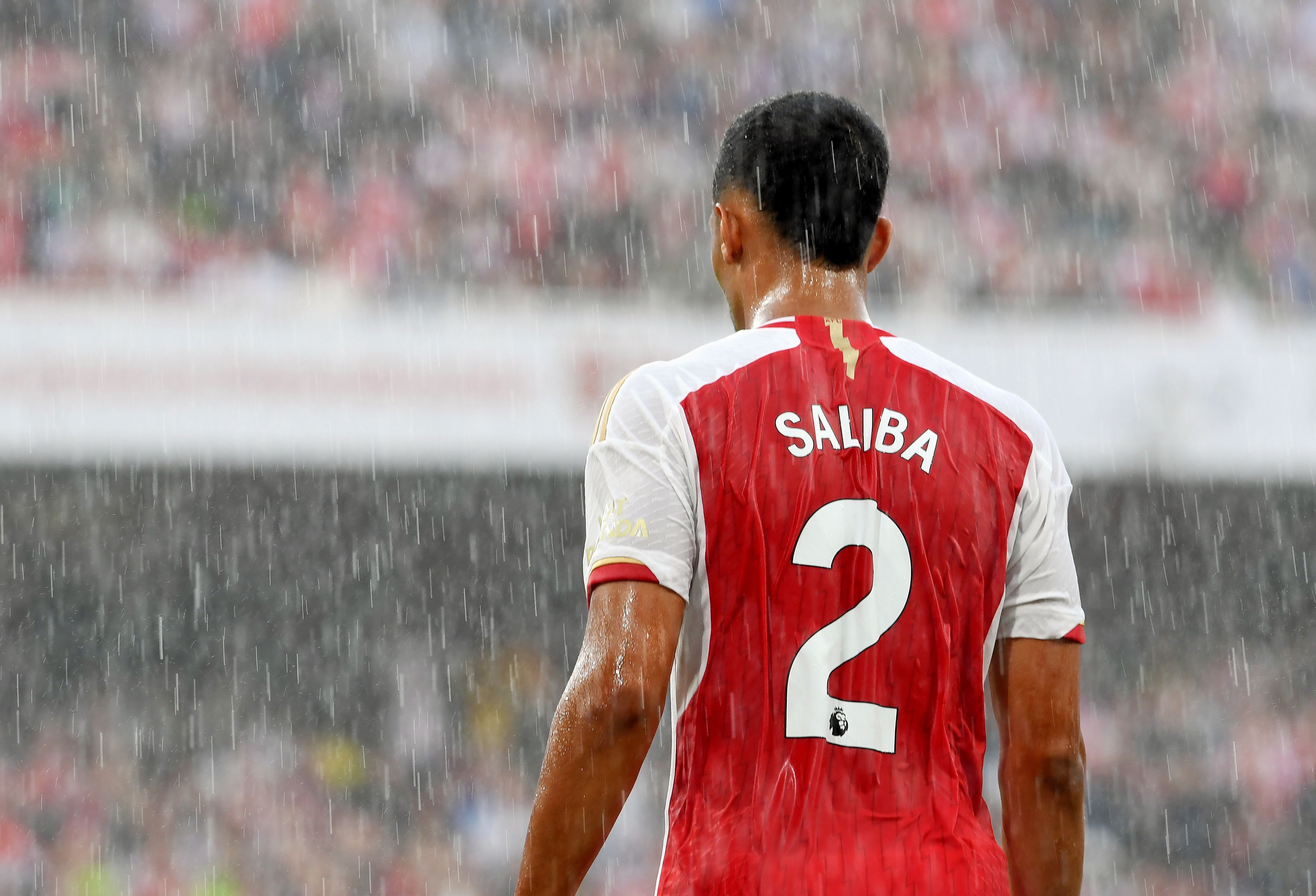
William’s main memories of those early days at Bondy – he was there until he was 13 – are of a fantastic team spirit, and relentless winning.
“There was a really good atmosphere in that team,” he says with a smile. “I have some really good memories from that time, because my friends in the team were also my friends from my school, so we hung out together all the time, and then we would play the games together.
“We won a lot of trophies as well so that obviously made the atmosphere really nice too. I scored a lot of goals in that team – a lot! Most of the time I played, I scored. If I ever went a game without scoring, then I would always score in the next one.
“I think I was a good player, but I was never the captain or anything like that. It was because I was too young in my head, do you know what I mean? I wasn’t very interested in being captain anyway. I was happy to be the main striker!”
A France youth international from every age group from under-16 right through to 21s, William’s early promise was obvious. But he says that potential might never have been given the chance to flourish, were it not for the lessons he learned at Bondy.
He never had a problem with his desire as a youngster, but admits to not always reacting well when things went against him.
“I always wanted to win,” he says. “That’s all I wanted when I was a young player. I wanted to win every game and that’s what really motivated me at that age. I wanted to score in every game, but I wouldn’t say I was a selfish player. Some strikers are selfish, but I also looked for my team- mates too.
“I have to be honest though, and say I was a lazy player. Yes I was lazy, and also I would sulk quite a lot. My manager would always tell me off for sulking, for being lazy in training. This is maybe why I wasn’t captain! As I said, I was young in my head, but then I grew up. My coaches helped me a lot at that age. I realised how you had to be on the pitch and I changed.”
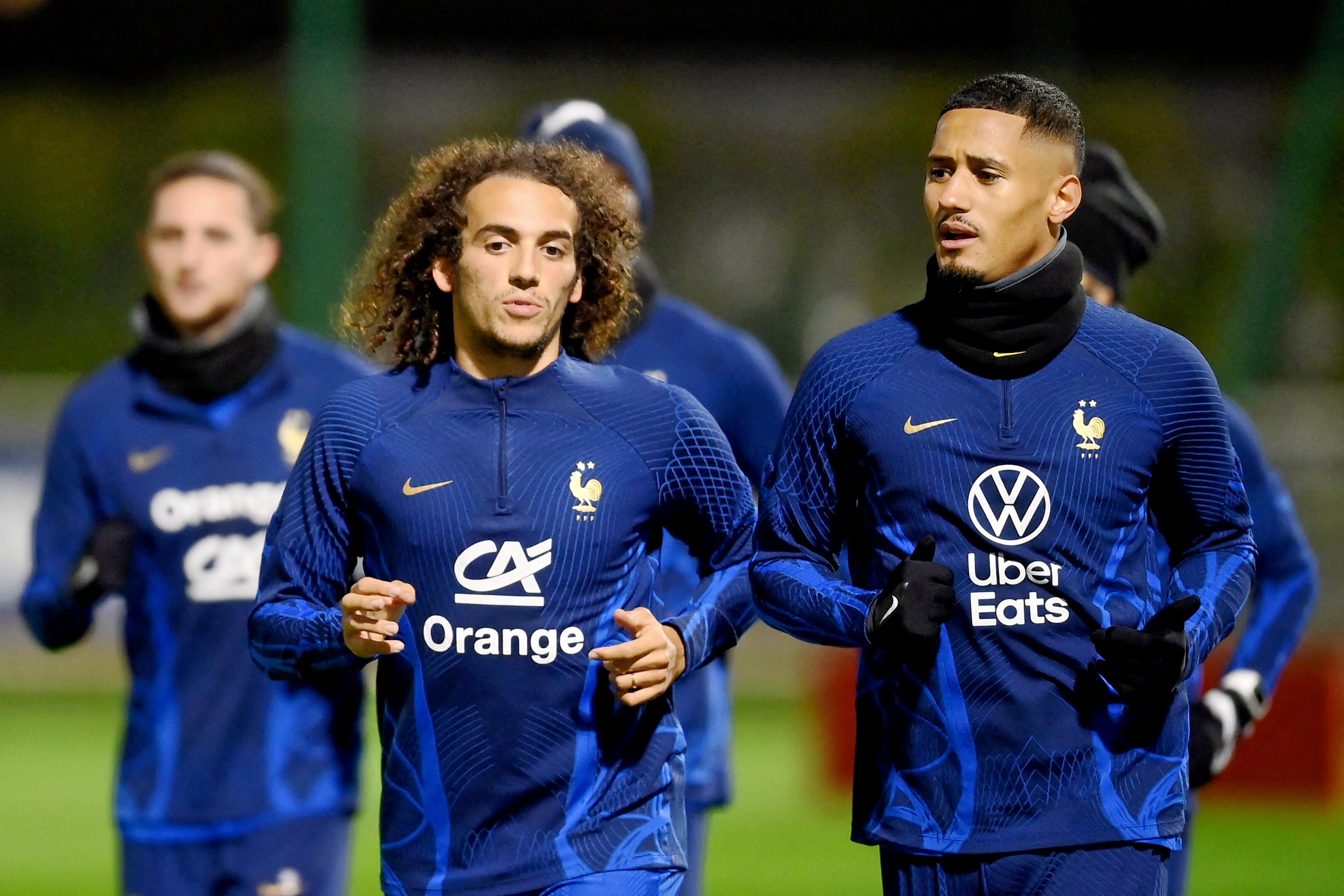
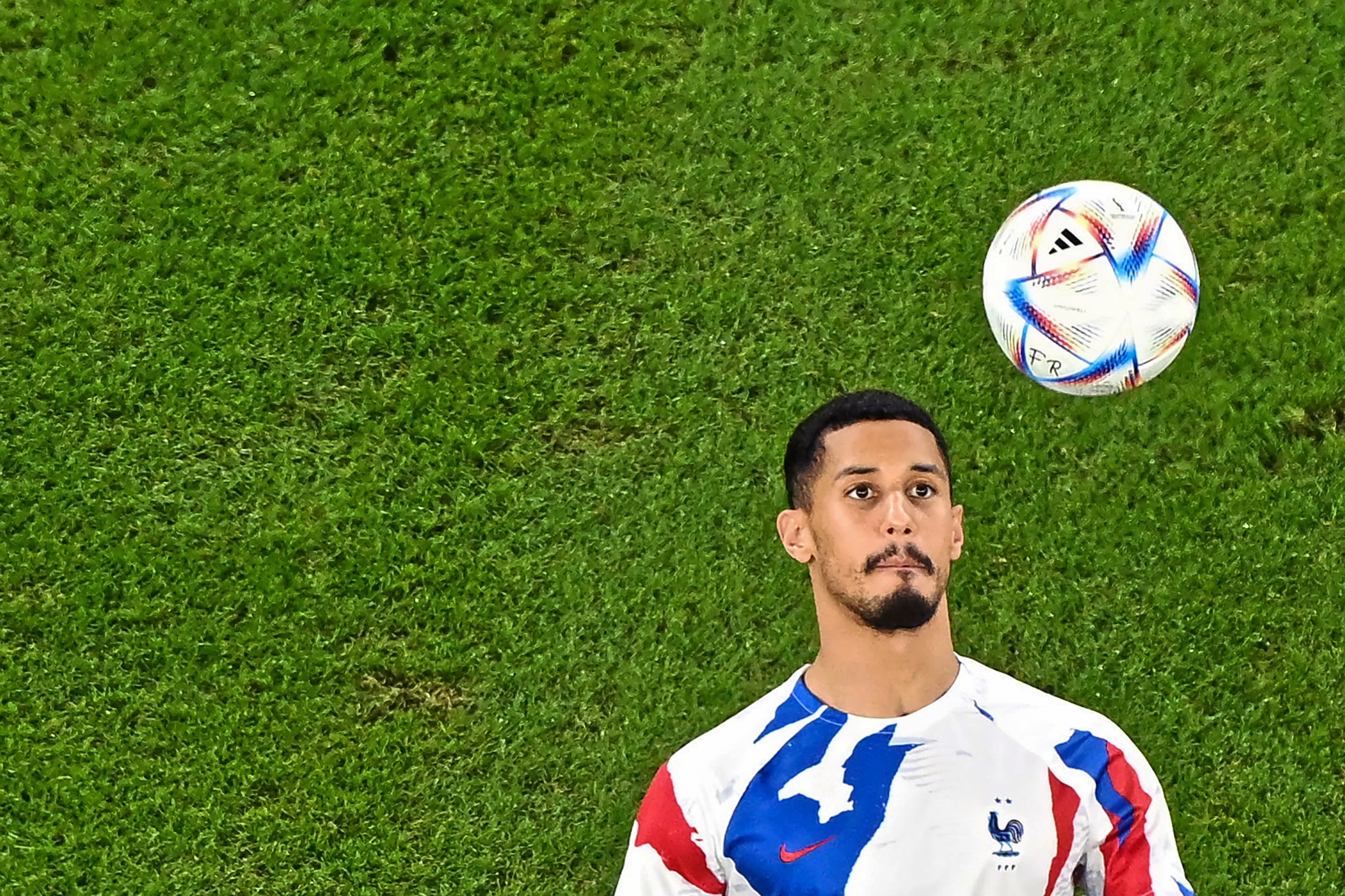
After eight years at Bondy he moved to FC Montfermeil, in the eastern Paris suburbs, and was there two years before being picked up by Saint-Etienne. By now a powerful and imposing central defender, he made his professional debut at the age of 17, and had just one season in Ligue 1 before being signed by Arsenal.
He immediately went back to St Etienne for another season (helping his side to the Coupe de France final) before returning briefly to London ahead of another loan deal in France (this time with Nice) and then spending the 2021/22 season at Marseille.
So last season was his first at Arsenal, even though he joined in 2019. Despite the unusual start to his Gunners career, he says he feels completely at home at the club.
“Of course when I was on loan, I was not here every day,” he says, “so you are not as close to everyone and part of the group. That’s normal. But as soon as you get here, you feel you are part of the team, and you are part of the family.
“I’ve felt like more a part of the family since I came here after the loan spells, and that’s how it is here. There’s a great feeling here and football is like that anyway. Every year new players come into the group, and the others make them feel welcome.
“It's the same this year too. New players have joined, we did not know them before, but you help them become part of the family. You learn about everyone, about every culture. You get to learn a lot about new cultures, and I like it when people come to me as well and ask about France. Maybe they are going on holiday to Paris, or the south of France and they speak to me about it.
“We have very good atmosphere here,” he adds. “Every day we have a laugh, we have a joke, we like being round each other, but when we are on the pitch we go hard and we are serious. It’s important to have both – you cannot do one without the other.”
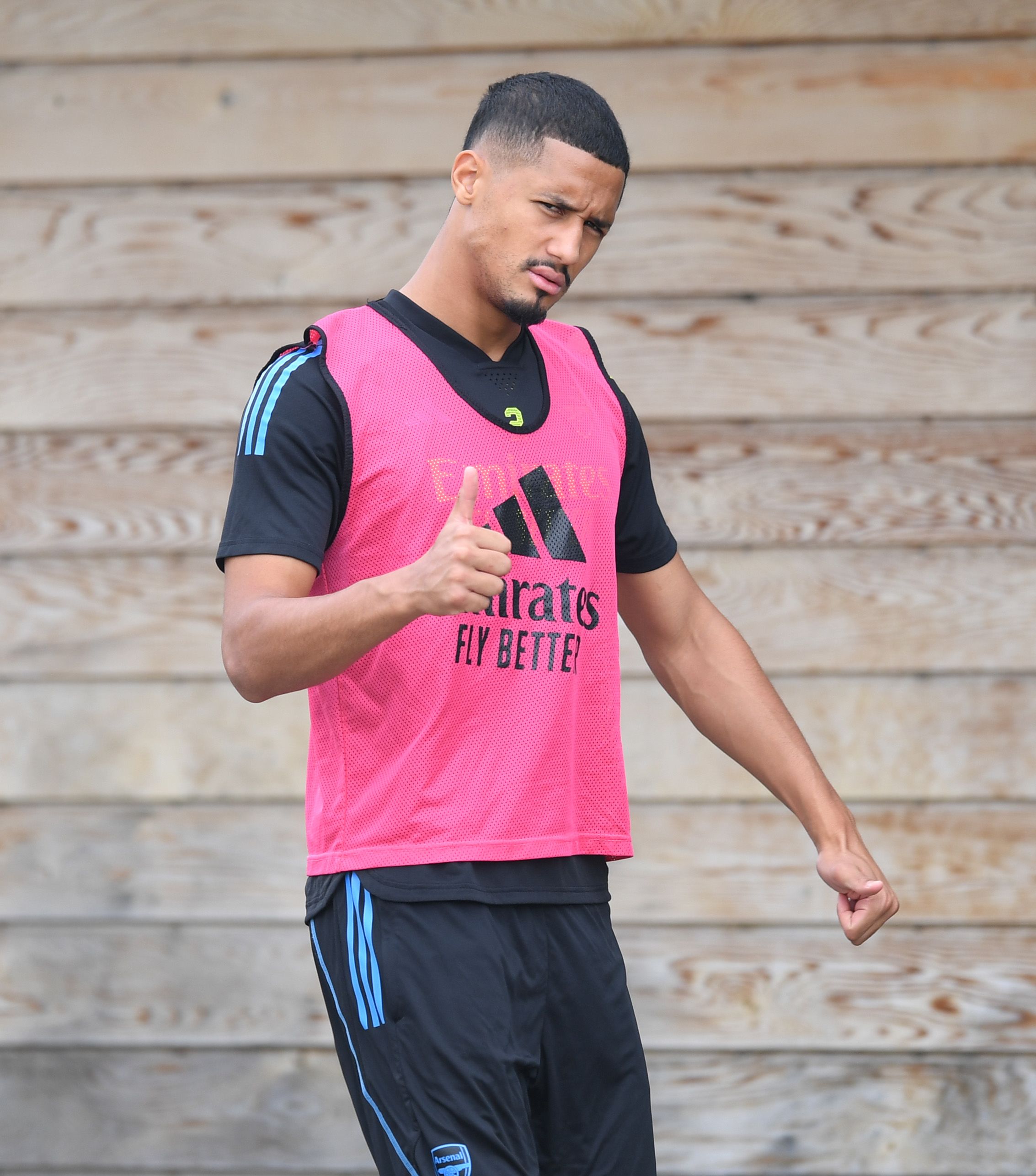
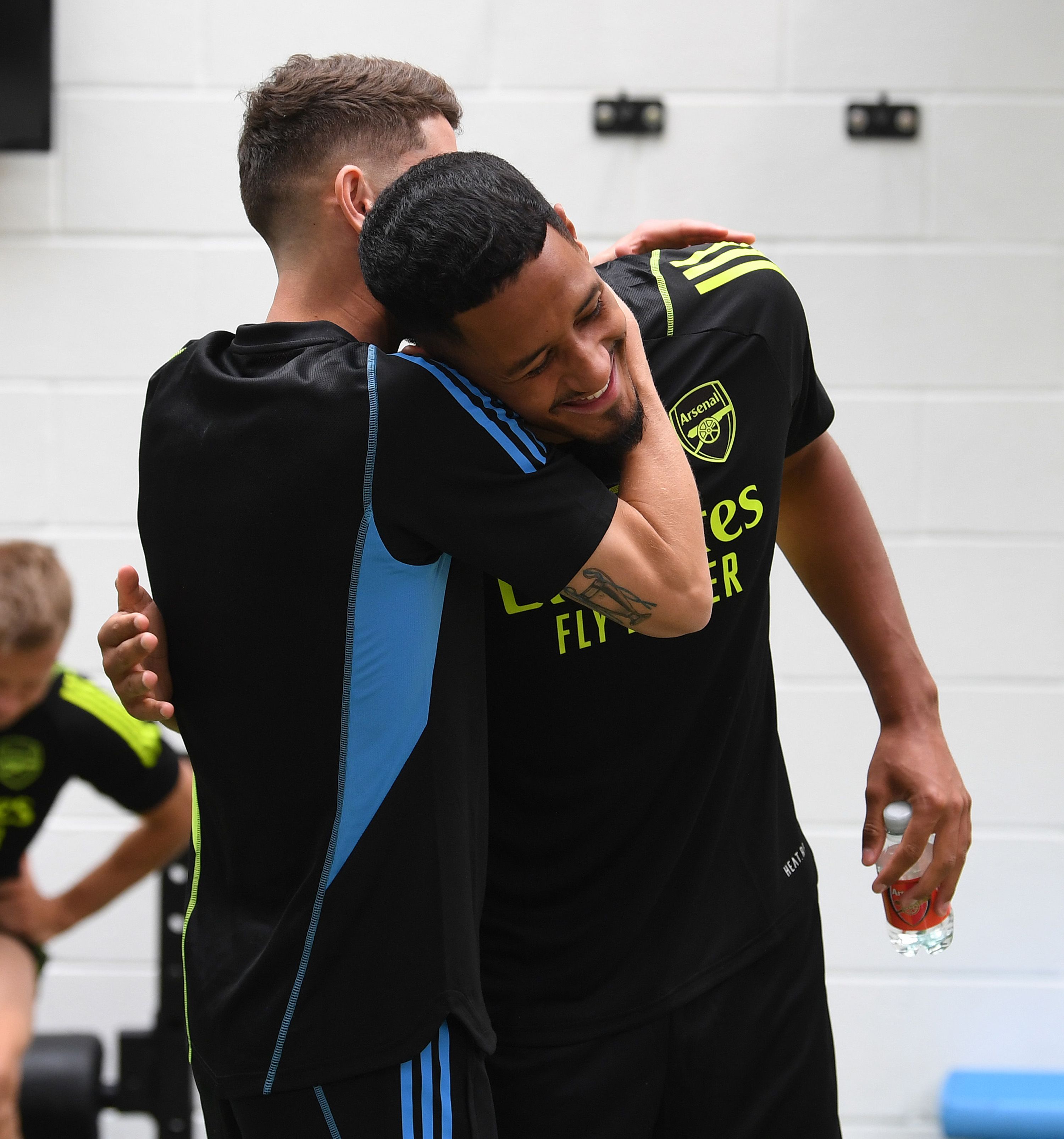
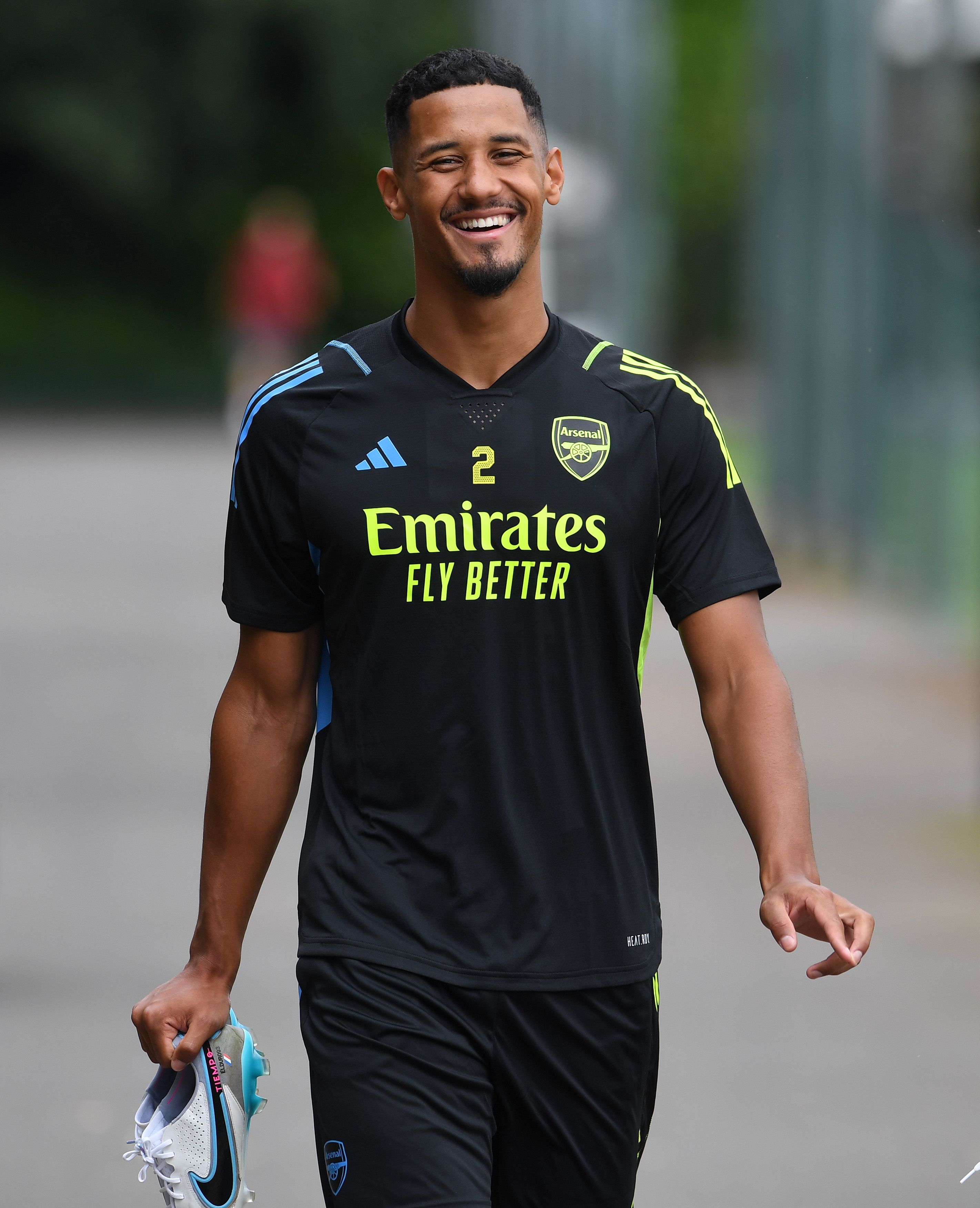
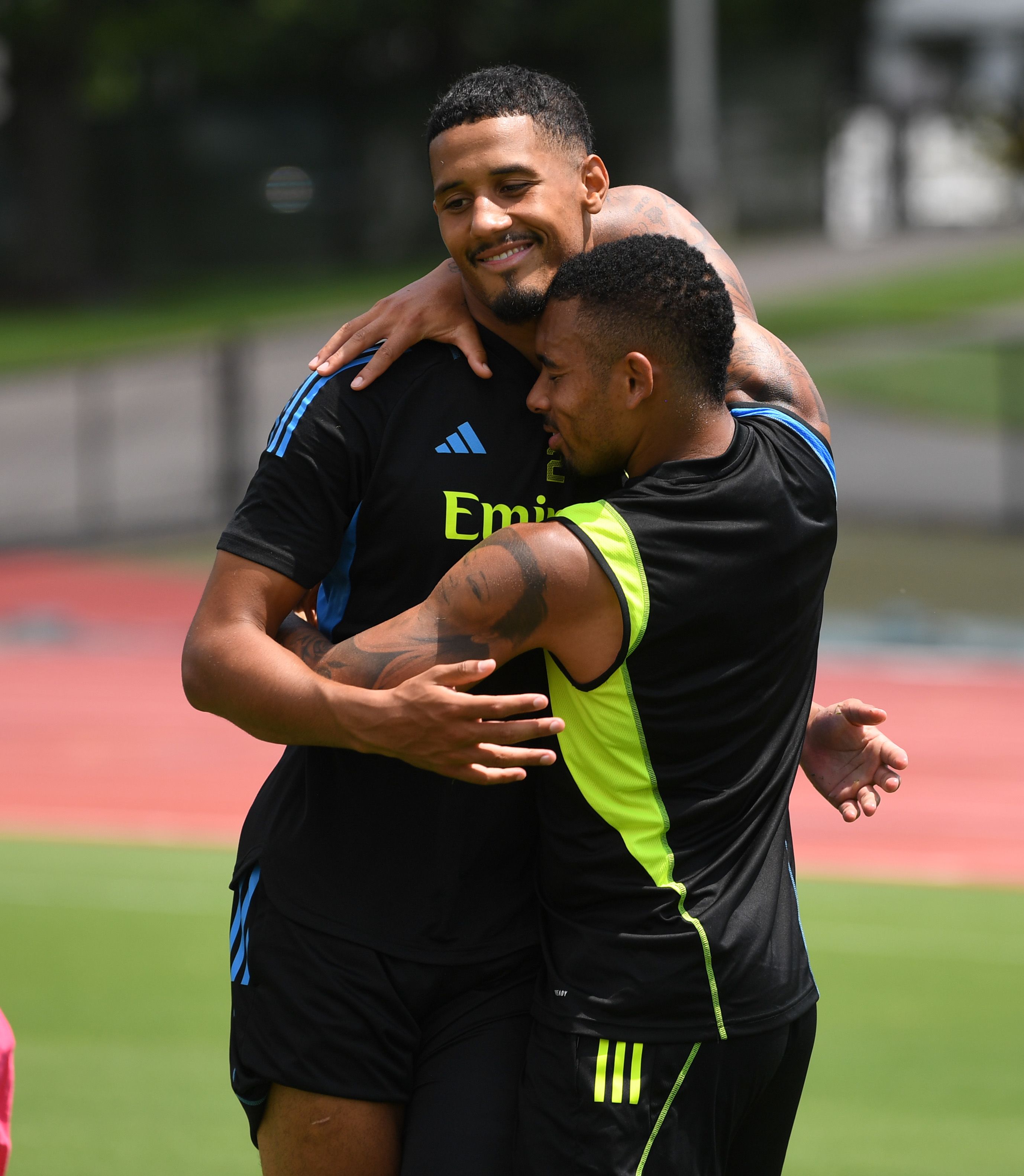
“I’ve felt like more a part of the family since I came here after the loan spells, and that’s how it is here. There’s a great feeling here"
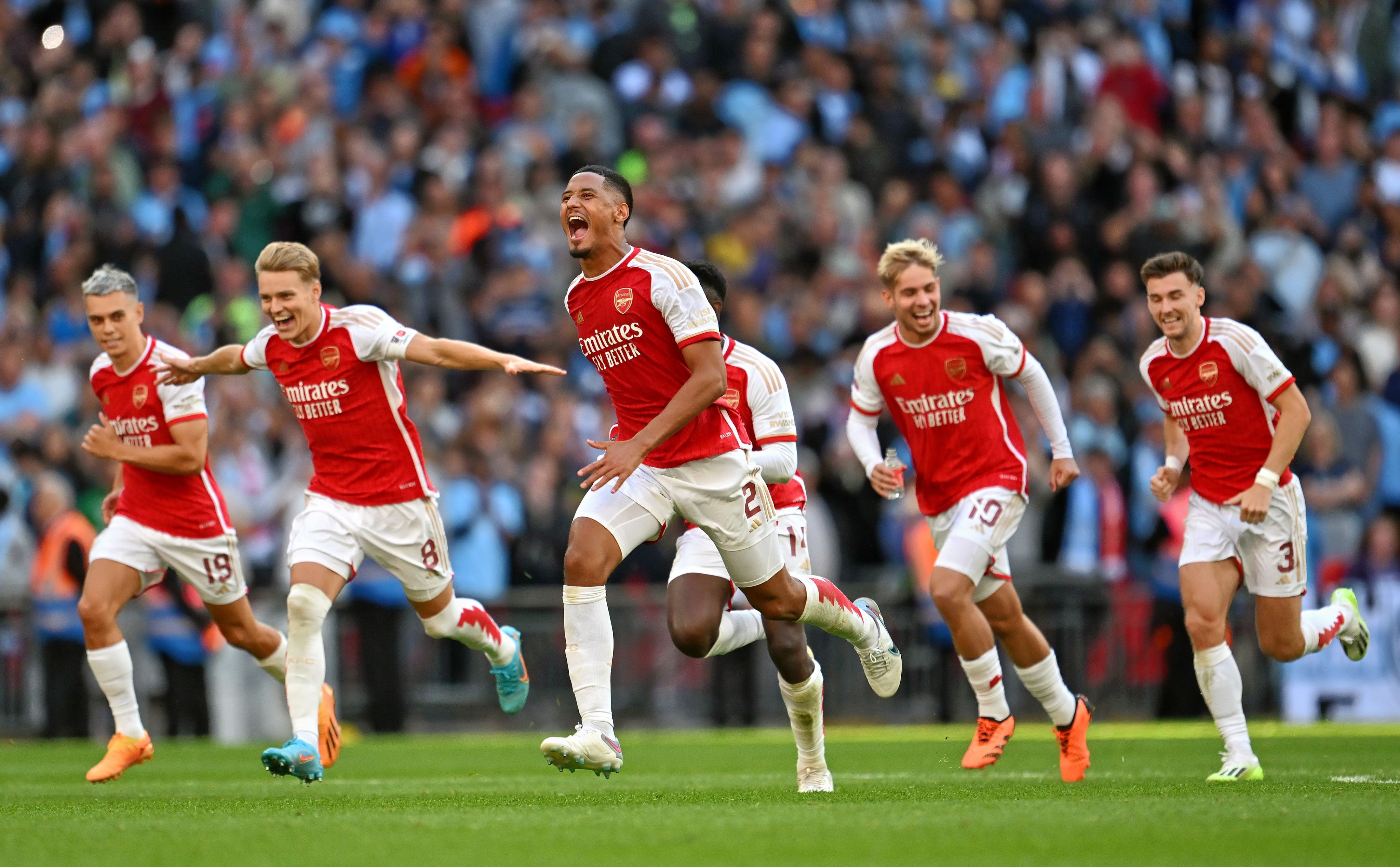
William, now 22, explains that this feeling of unity and togetherness is crucial, but has also been carefully nurtured by Mikel Arteta and his coaching team.
“We do a lot of things to be closer and closer and to learn about each other,” the big defender says. “The coaches will speak to us about how important it is to be a unit, and to be together, not just with the fans, but as a team as well. An example is when we were on tour in America, for every meal we always mixed the tables. We don’t choose the table where we sit at lunch or dinner.
“We get to speak to the coaching staff, to other players and I really like that. There might be a player there who you speak to less and it’s a chance to know them more, to be together, and that all helps as a team when you are on the pitch too.
“It really helps when you are on the pitch. When you are playing and you can feel that the whole team is together, that everyone likes each other, and wants everyone to do well – it raises the whole level.”
Due to his loan spells, William has never spent more than two consecutive seasons in the same dressing room at a club, so he has had fewer opportunities to build those relationships and gel with his teammates. He believes the pre-season tour in America was particularly helpful in getting to know people, and discussing life off the pitch as well as the football.
But he also believes there isn’t much difference between life at Arsenal compared to the French clubs he’s been at, and indeed the France national team, which he first represented early last year.
“The first thing and the most obvious difference is the language. Here we have lots of different languages, not just English but Portuguese, Spanish too. But I would say apart from that it’s a similar feeling in the dressing room. Everyone is determined to win, everybody wants to do their best but also people like to speak up in the dressing room. You can have discussions, you can talk about the games and always look to improve.”
Wilo concludes by saying that although there might not be many differences between the team life at Arsenal and other clubs, he has noticed something unique to his current home: the connection with the supporters.
“It makes a big difference to have fans like we do,” he says. “In the bad moments they help us and we always want to say thank you through what we do on the pitch and try to win the game for them. We play football for this. You play for the fans, you play for the good moments and you play for that feeling at the Emirates.”
